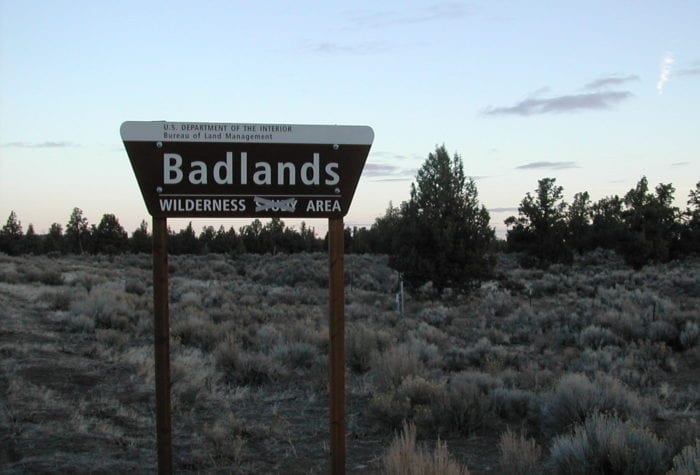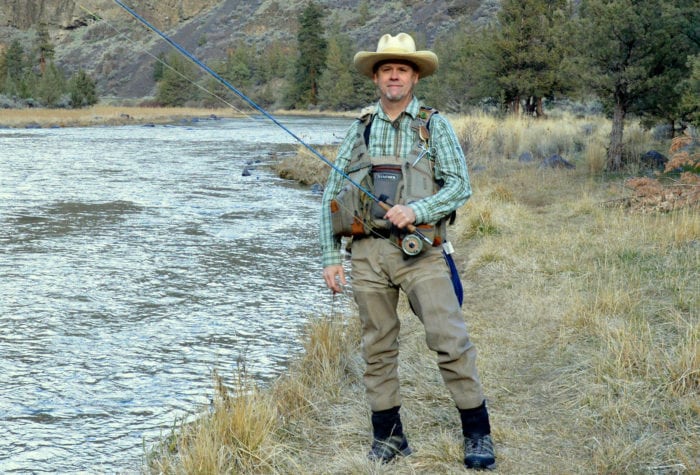2024 Muhly Lake Fence Retrofit
Aaron Tani
Organizer: Sarah Lindsay and Gena Goodman-Campbell
Dates: September 13-15, 2024
Region: Central Oregon
Difficulty Rating: Level 3: Challenging
Maximum Group Size: 8 participants
About the place
ONDA’s conservation work takes place on the traditional lands of the Northern Paiute, Wasco, Warm Springs, Bannock and Shoshone people, as well as ceded lands of the Confederated Tribes of the Umatilla Indian Reservation, and on lands currently managed by the Burns Paiute Tribe and the Confederated Tribes of Warm Springs. Many Indigenous peoples live in Oregon’s high desert region today, including members of the Burns Paiute Tribe, the Confederated Tribes of Warm Springs (Wasco, Warm Springs and Paiute), the Klamath Tribes (Klamath, Modoc and Yahooskin) and the Fort McDermitt Paiute and Shoshone Tribe.
Muhly Lake is a remote mesic, or wetland area located on Twelvemile Table, a vast open expanse of sagebrush sea located on the east side of the South Fork Crooked River Wilderness Study Area. As part of the Twelvemile-Paulina Priority Area for Conservation (PAC), Muhly Lake provides critical habitat for sage grouse and other high desert species that depend on rare desert water sources to survive. Muhly Lake is excluded from livestock grazing by a fence surrounding the mesic area to protect this sensitive habitat; our work on this trip will invlove retrofitting the fence to make it more friendly to wildlife by removing the barbed top and bottom wire and replacing them with smooth wire, as well as placing plastic flagging on the fence to lower the risk of sage grouse striking it.
About the stewardship work
This trip is part of a collaboration with the Prineville BLM district focused on retrofitting fences to make them more friendly to wildlife. By retrofitting the fences protecting this mesic, or wetland area, we will be improving migration corridors for pronghorn antelope, sage grouse, and other wildlife, as well as setting the stage for future restoration projects. Volunteers will camp on public lands near the work site and will depart the campsite at 8 a.m. each morning and travel back to camp by 4 p.m. The work each day will involve hiking or carpooling to the project location and hiking up to 6 miles a day while completing fence retrofit tasks such as running heavy wire spools, pulling staples and unclipping wire, splicing wires together, and stapling and clipping the new wires. No previous fence experience is necessary for this trip and all training, tools and materials will be provided.
Trip timeline
- Friday, September 13, 4-6 p.m.: Meet near Muhly Lake to set up camp and get settled in with dinner. We’ll have an evening orientation about the next days’ work.
- Saturday, Sep. 14, 8 a.m. to 4 p.m.: A full day of work retrofitting fence away from camp.
- Sunday, Sep. 15, 8 a.m.-2p.m. We will work part of the day retrofitting fence before returning to camp to pack up camp and head on home!
Camp
We will be dispersed car-camping on undeveloped public land in an area of open sagebrush. ONDA will provide some additional amenities such as shade/rain tarps and extra chairs. The access road is an unmaintained dirt road, but it is not too much for a Subaru.
Difficulty
This trip will be physically demanding. Access along the fence line is only by foot and we will likely be hauling a variety of fence materials to where they are needed to conduct repairs. Footing is often uneven and slanted.
Participant responsibilities
Participants are responsible for their own food, water and camping gear, as well as transportation to and from the trip. Sturdy off-trail ankle-high boots are required for this trip. We recommend bringing your own work gloves to provide a comfortable fit, but it is not required. Potable water is not available at the campsite, so volunteers will need to bring sufficient water for drinking and cooking during the course of the trip.
Gear provided
ONDA will provide work gloves if you don’t have a pair, all the tools and materials required for the work, safety gear and excellent guidance in the field.
Registration
An ONDA registration application and medical form are required for this trip. Check the box next to each trip you would like to attend.
Registration Opens July 16
You will receive a confirmation email within 2 weeks of submitting your form. The confirmation email will provide information regarding which trips you are on the “participant list” for, and which trips are full, and therefore you have been placed on the “wait list.”
Six weeks before the start of the trip, the trip leader will send out an RSVP to make sure everyone is still able to participate. Based on RSVPs, open spaces will be backfilled with people from the waitlist.
Three weeks before the trip start date, registered and confirmed participants will receive driving instructions, maps, and additional information in an email sent by the trip leader
If you have any questions in the meantime, please don’t hesitate to contact the trip leader.
Your Trip Leader
This trip will be led by Sarah Lindsay. If you have questions, you can contact her at slindsay@onda.org
Meet Sarah
